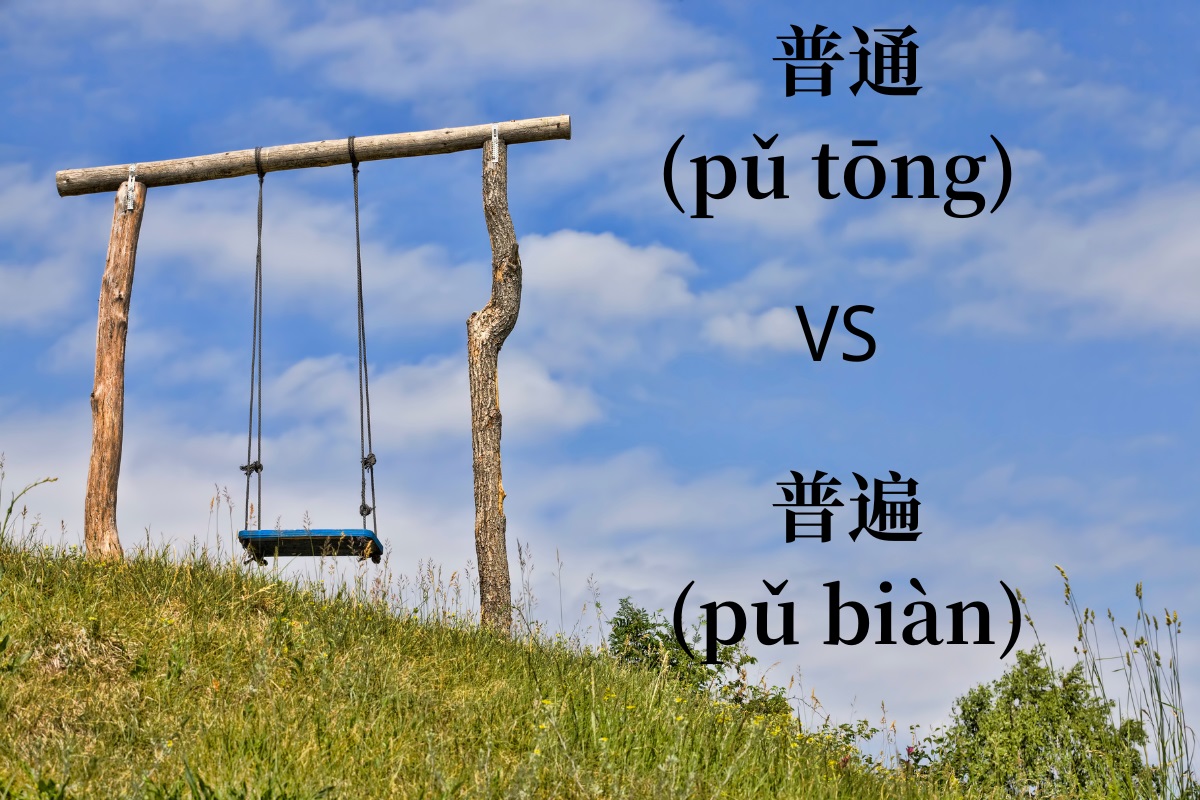HSK Words: 普通 (pǔ tōng) VS 普遍 (pǔ biàn)
Synonyms are words that have similar meanings, but not always identical. Understanding the nuances between them is crucial in effective communication. In this article, we will explore the differences between 普通 (pǔ tōng) VS 普遍 (pǔ biàn) and their various synonyms to enhance our HSK vocabulary and communication skills.

普通(pǔ tōng) means usual or not special, which refers to ordinary people or things.
Examples:
- He was a very ordinary man, rarely noticed by everyone.
他是个很普通的人,很少被大家注意。
tā shì gè hěn pǔ tōng de rén , hěn shǎo bèi dà jiā zhù yì 。 - This book looks ordinary, but it was a gift from my mom.
这本书看起来很普通,但是它是妈妈送给我的礼物。
zhè běn shū kàn qǐ lái hěn pǔ tōng , dàn shì tā shì mā mā sòng gěi wǒ de lǐ wù 。 - She's just an average kid, not a genius.
她只是个普通的孩子,不是天才。
tā zhǐ shì gè pǔ tōng de hái zi , bù shì tiān cái 。
普遍(pǔ biàn), in the sense that it exists on a wide scale; having a common character: a universal phenomenon.
Examples:
- There was general support for my view.
大家普遍支持我的观点。
dà jiā pǔ biàn zhī chí wǒ de guān diǎn 。 - This phenomenon is common in China.
这种现象在中国很普遍。
zhè zhǒng xiàn xiàng zài zhōng guó hěn pǔ biàn 。 - Handshakes are more common in some countries.
握手在一些国家更普遍。
wò shǒu zài yī xiē guó jiā gèng pǔ biàn 。
Quiz: Please consider whether to use 普通(pǔ tōng) VS 普遍(pǔ biàn) in following sentences.
- 网络舆情控制是企业____面对的问题。
wǎng luò yú qíng kòng zhì shì qǐ yè ____ miàn duì de wèn tí 。 - 政府要更多地考虑____百姓地要求。
zhèng fǔ yào gèng duō de kǎo lǜ ____ bǎi xìng dì yāo qiú 。 - 他的做法引起了人们____的不满。
tā de zuò fǎ yǐn qǐ le rén men ____ de bù mǎn 。
Answer:
- 普遍(pǔ biàn)
- 普通(pǔ tōng)
- 普遍(pǔ biàn)